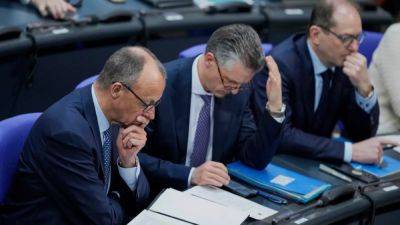It's time to rev up Germany's economic engine
Germany’s economic strength has long rested on a formidable industrial base, a highly skilled workforce, and robust domestic institutions.
Yet for decades, its prosperity was also underpinned by a fragile trifecta: cheap Russian energy, the security umbrella of the United States, and a thriving export market in China.
Now, global shifts have dismantled these external supports, exposing deep structural frailties. An ageing workforce, chronic underinvestment, and regulatory inertia threaten to entrench stagnation.
With the elections now behind us, the urgency for reform is clearer than ever. After two years of negative growth, Germany must reinvigorate its economy.
The new government has a crucial window of opportunity to recalibrate Germany’s economic trajectory with bold, targeted reforms. At the same time, Germany must continue playing to its strengths to remain competitive in the new global economy.
A recalibration must begin with fiscal policy. Germany’s constitutional debt brake, which caps the federal deficit at 0.35% of GDP, has significantly constrained public investment.
Fiscal prudence is commendable, but its rigid application has starved infrastructure, digitalisation, and industrial modernisation of much-needed funds. In 2021, public investment stood at 2.6% of GDP – well below the OECD average of 3.4%.
A study from last year estimates that Germany must invest at least €600 billion over the next decade to modernise infrastructure, enhance education, and advance decarbonisation—excluding the additional resources required for increased defence spending.
Public sentiment is shifting accordingly. 55% of Germans now support reforms to the debt brake, including 55% of the CDU voters and 41% of FDP supporters.
Labour





